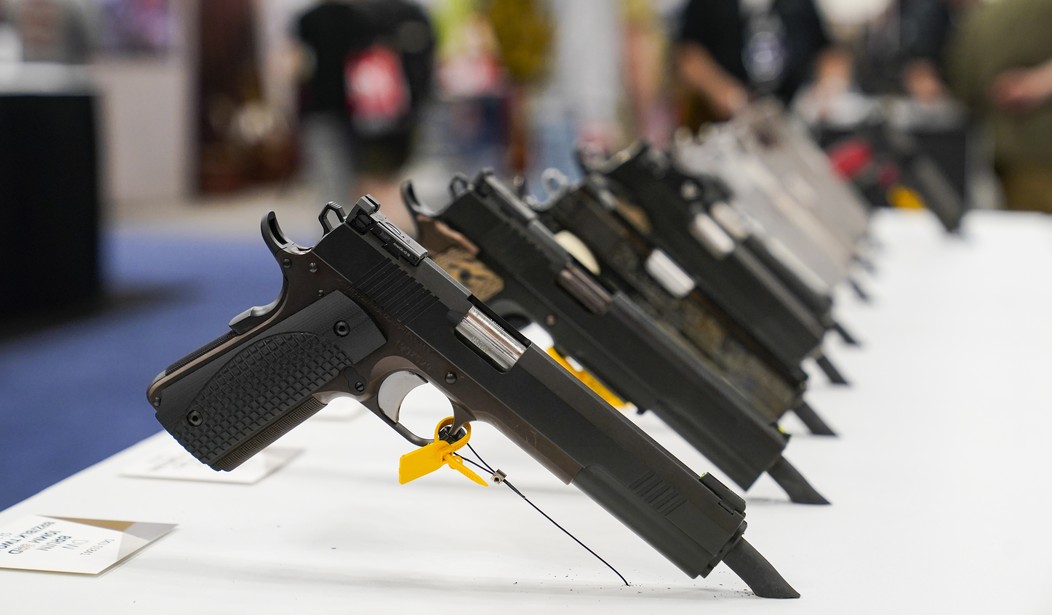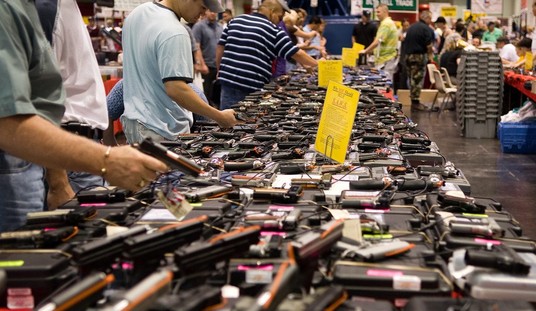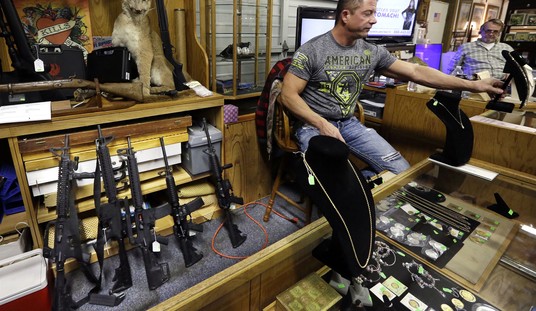The media seems bound and determined not just for you to believe doctors are anti-gun as a whole but that those who speak out about their experiences dealing with gunshot victims provide important information to the gun debate.
Yet there's a problem with this. It's basically a case of perception bias.
People have a tendency to take what they can see and overvalue what it all means. For example, if you experience something while spending a summer working on a farm, you may believe that's the norm for farm workers rather than being something that just impacted you.
Now, this matters because on matters of politics, a lot of people assume that their own perceptions are not just accurate, but universal.
This is the perception bias I mentioned before. They are biased toward their perceptions giving them the broad picture rather than only a tiny glimpse of it.
A prime example is the authors of this piece.
Subtitled, "OPINION: U.S. Surgeon General Vivek Murthy called gun violence a public health crisis for the first time, a declaration that’s long overdue. As surgeons, we’ve seen the deadly consequences of gun violence on the nation's children," we can already see the perception bias at work.
Last month, U.S. Surgeon General Vivek Murthy formally declared firearm violence as a public health crisis in America for the first time. That declaration was desperately needed because history tells us that public health declarations can help move the needle on key issues, from smoking to motor vehicle safety. But can it do the same for guns, perhaps the most politically fraught issue in American society?
As surgeons who operate on children who are shot week in and week out, we need it to move the needle. We hope the public recognizes that when health care professionals say that gun violence is a public health crisis, we are speaking out as experts in our field — and as human beings.
We want to take you behind the curtain and explain three aspects of gun violence no report or statistic could capture because they speak to why this report from the surgeon general is so necessary.
One is what you could call “the gap” — something that exists during that brief moment in time between the operating table and the waiting room when we know a child is dead but their parents still hold out hope. It’s not just a gap in knowledge; it’s more physical than that. When you call a “time of death” for a 9-year-old, their chest riddled with bullets from an AR-15, your head gets light, your hands go numb and you can feel the space that’s been opened for a family between the world as it was and the world that now is.
Now, as someone who has had to deal with families losing a loved one before--and yes, in a healthcare setting--I can only imagine how much harder it would be to do that with the family of a child. I was spared that, thankfully.
Yet the authors present this as if it's particularly relevant to the gun debate.
Absolutely no one thinks the loss of a child's life is acceptable. They never have and never will. It's irrelevance has nothing to do with the individual or their family, only with the political question as a whole.
You see, the problem with anecdotes like this is that they provide, at best, a single glimpse into what has happened with guns in our communities. It creates a visceral, emotional response that's designed to make people feel a certain way.
The authors, however, aren't being malicious in this. They're really not. They actually think their experience is relevant to the debate because it's relevant to them.
But the truth is that their experience is only a pixel in the overall picture of guns in our society.
For example, do they see the result of the woman who scared off a would-be rapist with her handgun? Do they see the family that's alive because a missed shot sent the home invaders running?
No, they don't.
They also don't see the children who aren't mauled by animals that were shot and killed by armed adults. They don't see a lot of cases of self-defense that take place each and every day.
They also don't see the legions of Americans who were never harmed because any potential invader had to consider an armed populace and decided they just didn't have the manpower to invade the United States in the first place.
None of those folks crossed their operating tables. They never came into the emergency rooms or morgues.
As a result, the authors got an incomplete picture of what role guns play in our society. It's not that they don't know what they're talking about. It's that what they're talking about is only a tiny part of the overall equation and they're still hung up on how to form the letter "x."








